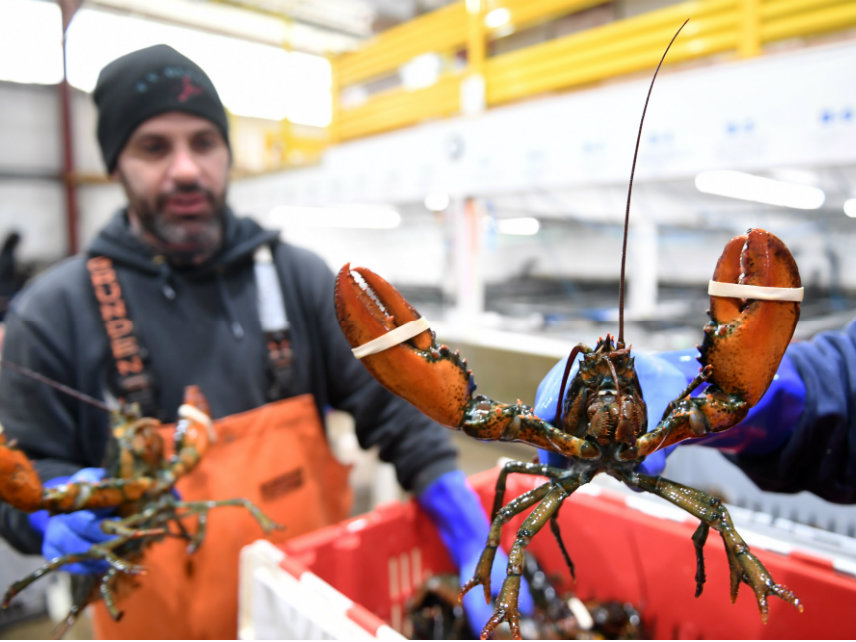Feeling the Pinch: U.S. Lobster Exports Tank Thanks to Trump's Trade War
The Chinese tariffs have clobbered the lobster market, with prices falling to two-year lows.

For a good illustration of how tariffs and trade wars can warp the usual rules of an economy, look no farther than the Maine lobstermen who are hoping to catch fewer lobsters.
After hauling in record-levels of lobsters in recent years—many of which were sold to China—lobsterman Willis Spear told NPR in July that he's "praying for a few less lobsters" this year.
"If there's less, there'll be a bigger demand," he said.
What Spear probably means is that fewer lobsters will increase prices, which have been falling since early July when China imposed new tariffs on a wide range of American exports—targeting not only lobsters, but also soybeans, pork, whiskey, and more—in response to President Donald Trump's decision to slap tariffs on Chinese steel, aluminum, and roughly $50 billion worth of other exported goods. The Chinese tariffs have clobbered the lobster market, with prices falling to two-year lows and exports to China down 64 percent, according to data reported this week by the Portland Press Herald.
That's because a Maine lobster is now subject to a 25 percent tariff when it enters China, but a lobster harvested from just up the coast in Nova Scotia is subject to only a 7 percent Chinese tariff. It's no surprise that Chinese buyers are turning to Canadian lobsters.
Stephanie Nadeau, a lobster dealer, tells the Press Herald that Maine is having trouble competing with Canada. Her company has already had to lay off workers.
"The boats will survive. Many dealers will not," she tells the paper. "The longer it goes on, the more damage is done."
And the damage caused by Chinese tariffs is compounded by American tariffs on steel and aluminum, which have increased the prices to buy and repair lobster traps.
What's the antidote to this chaos? Ending the trade war would be a good start. What's happening to lobstermen in Maine is pretty similar to what's happening more than 1,000 miles west, where soybean farmers and other agricultural businesses have been bearing the brunt of Chinese tariffs.
Instead, Trump seems determined to do exactly the opposite. Another round of tariffs on $200 billion of Chinese imports seems imminent, and the president has threatened to go even further, though it's unclear how serious those threats are.
American consumers might benefit from lower prices for lobster, at least temporarily. But the cost is lost jobs and, indeed, even the loss of an incentive to catch lobsters—as Spear suggests. It leaves lobstermen with a perverted choice between doing their jobs and accepting lower prices, or hoping for fewer catches and relatively higher prices. Either way, China's rapidly growing market for lobsters is now closed to American businesses.
"It's like any other crop or harvest with supply and demand," Lobsterman Bob Morris tells the Boston Globe. "It's always the farmer or the fisherman who ends up paying."
Show Comments (137)